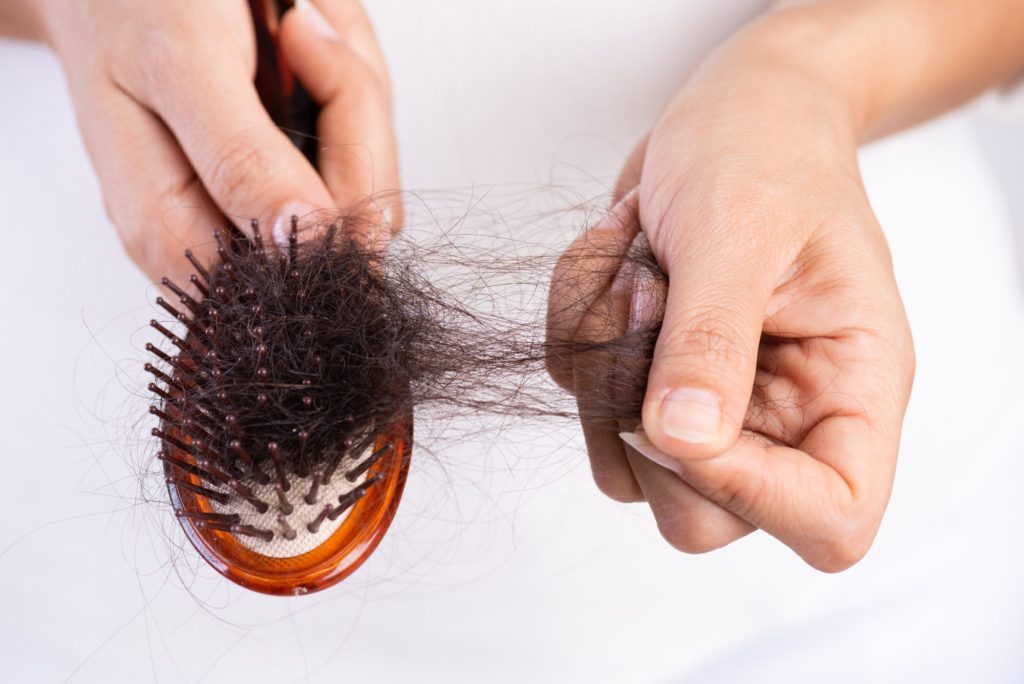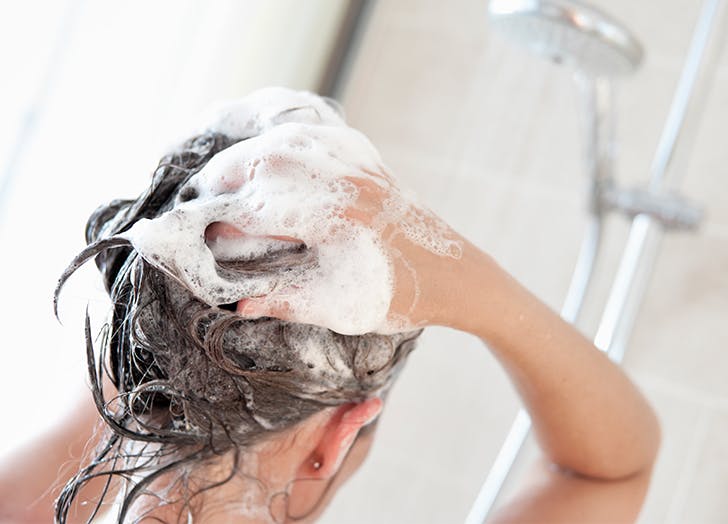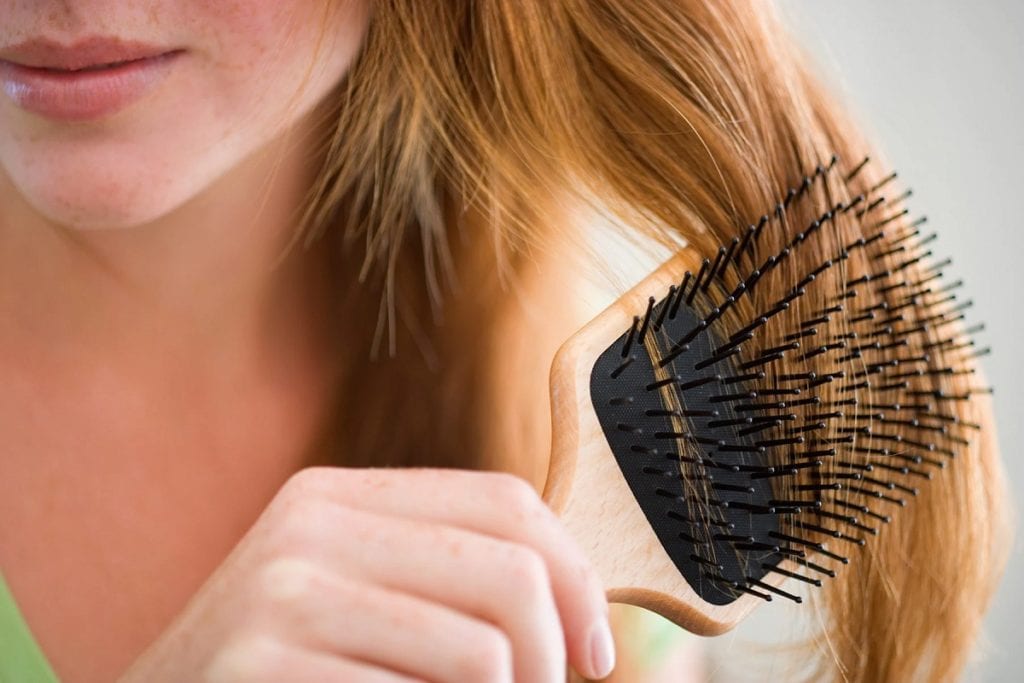From rigorous workouts to extreme diets, there’s no shortage of options for you to try when it comes to shedding pounds. With the advent of social media and filters aplenty, tiny waists and flatter tummies have become a viral trend. To achieve a Kardashian-worthy physique, more women are turning to fads and crash diets without understanding the consequences. But when you deprive yourself of the bare essentials your body needs to function, the repercussions could leave you looking for the best shampoo for hair loss and other remedies.
Shedding Pounds Means Shedding Hair
One of the most common issues women face when they try out extreme diets is hair loss. That’s because crash diets, more often than not, lack the nutrients needed for your body to function properly. Sure, you can get shampoo for hair regrowth, and you can drink a multitude of vitamins, but is it worth putting your hair through such trauma in the first place?
The body needs a certain number of calories and proteins to feed hair follicles. Some experts say that the more weight you lose, the higher your chances of experiencing hair loss to some degree. Dropping and picking up weight over many years impacts your metabolism and the growth of your locks.
Some people can experience hair loss within 3 to 6 months of starting a diet. It’s usually temporary, and a balanced diet along with a special shampoo for hair loss can help restore your locks, and there are a few other treatment options.

Too Much Of A Good Thing Can Be Too Much
Sometimes, getting too much of a certain vitamin can lead to hair loss. For instance, excess amounts of vitamin A can lead to the loss of your luscious locks. Also, low levels of vitamin D, niacin, selenium and zinc as the result of diet restrictions could be causing your hair to fall out. The same goes for low protein intake and low-calorie diets. There’s just not enough nutrition to let your body and your follicles function properly.
Nutritional Deficiency Equals Hair Loss For Women
A lack of nutrients is one of the causes of hair loss. Nutrient deficiencies are linked to both telogen effluvium and androgenetic alopecia. The fewer vitamins your body gets, the more hair you risk losing. For example, if you have a history of anaemia, experience heavier than normal periods or are vegetarian, low iron levels may contribute to hair loss. While you can take iron supplements, there’s no evidence to say they’re effective in reversing the condition.
Hereditary Hair Loss After Losing Weight
There might not be a direct link between hereditary hair loss and hair loss after losing weight but fasting and vogue diets that cause dramatic weight loss have a knock-on effect on your hormones.
Consider insulin. Too much of it affects the way your body stores fat and gains weight. When you lose weight, you are better able to regulate your insulin levels. But scientists have found a link between the body’s ability to regulate testosterone (a key factor in innate hair loss) and insulin sensitivity. So, sudden and drastic weight loss might not be the direct cause of your hair loss, but the hormone fluctuations could be triggering that hereditary factor.
Shampoo For Hair Loss And Other Treatments
There’s good news. You can regrow your hair after weight loss. It’s not a permanent condition, so it’s pretty easy, too. From medical options to shampoo for hair loss and a few other treatments, here are the top three remedies for hair loss caused by weight loss.
Hair Transplantation
If you have already tried shampoo for hair loss, you’re swallowing handfuls of vitamins a day and your nutrition habits are on point, but you’re still struggling to grow back your locks, it might be time to consider hair transplant clinics.
With a hair transplant, healthy hair grafts are taken and transplanted to thinning or balding patches on your head. There are two ways to do this. With a Follicular Unit Transplantation (FUT), an entire strip of hair is removed, and follicles are then separated before being grafted to the infected areas. With a Follicular Unit Extraction (FUE), individual follicles are extracted and carefully grafted to the bald patches. It takes more time, but there are fewer side effects.

Medications for Thinning Hair
You can get rid of excess skin when you’ve lost weight, so it makes sense that you can get back to luscious locks, not just with the best shampoo for hair loss, but medication, too. Spironolactone is a prescription medication that helps with thinning hair. It’s not FDA-approved just yet, but it’s shown to help women with thinning hair and hair loss. Minoxidil is a medication that’s proven its effectiveness in multiple clinical trials. It’s an over-the-counter product, so it should be available in most pharmacies.
Shampoo For Hair Loss
There are plenty of shampoos on the market, all making big and exciting claims. But if you’re looking for the best results, you need to look out for certain ingredients. The best hair restoring shampoos contain hair vitamins and nutrients like vitamin A, iron, biotin, zinc, vitamin B and propacil to optimise hair regrowth and strong locks. Some evidence suggests that caffeine stimulates hair growth in both men and women, too.
You Are What You Eat
Hair loss during or after you’ve lost weight can be due to several factors, including nutrient deficiencies. But it can also be the result of hereditary hair loss or underlying health issues. That’s why it’s important not to self-diagnose and rather visit a qualified healthcare professional, be it a registered dietician or a doctor, to get to the root of your hair loss issues and put together a treatment plan that works for you.






